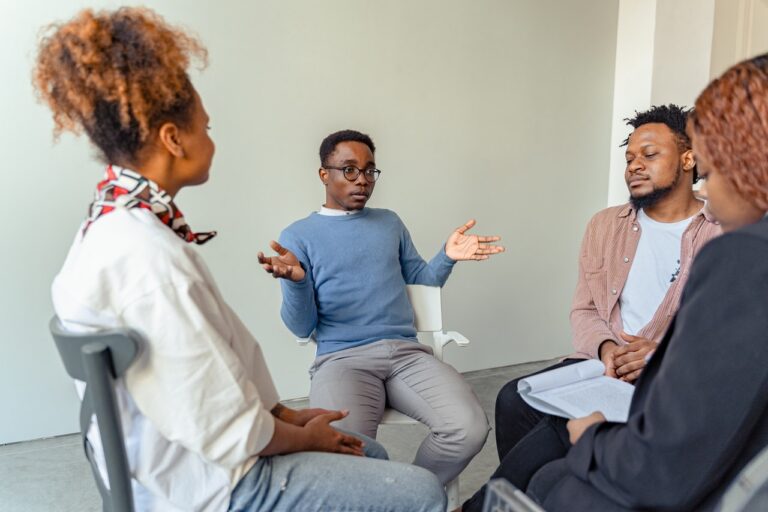How to Become a Better Listener
Becoming an engaged listener can give you the power to strengthen relationships, validate feelings and empower others. It takes more than just sitting down with someone and hearing what they say to become a better listener, however. Listening is a skill that takes time to practice and master in order to fully appreciate its influence and capability within conversations.
The three C’s of effective listening: compassion, curiosity and courage
When practicing to become better and more effective listeners, many follow a guide focusing on three main components: compassion, curiosity and courage. The ingredients in this recipe work independently as well as collectively to strengthen the skills needed to become a better listener. Let’s take a closer look.
One of the most important things to show when listening to others in an open and safe environment is compassion. Showing things such as empathy and understanding for someone’s situation— instead of apathy or disregard — welcomes the opportunity for those sharing to feel more comfortable with the listener, but with their own story and experience, as well.
The presence of curiosity within conversation is also key for displaying interest and affection. Showing your interest and craving to learn more from those speaking can further the feeling of validation and in turn encourage them to continue being open and vulnerable.
You might be wondering how courage comes into play when practicing listening and instead may think it’s more important for speaking. Yet, having the courage to effectively listen to someone often require courage and vulnerability, more so than sharing your own voice. In fact, Winston Churchil famously once said, “Courage is what it takes to stand up and speak; courage is also what it takes to sit down and listen.”
Beyond the three C’s, we should also all aim to apply compassionate witnessing and active listening to become a better and more effective listener.
Compassionate witnessing
Compassionate witnessing, an essential element in effective listening, goes one step beyond being empathetic and compassionate.
Compassionate witnesses understand the act of understanding as key to being a better listener. As a listener, your role isn’t to judge, interrupt or share your thoughts. Your main goal is to create a connecting and welcoming environment where you make the other person feel seen and important. By including compassionate witnessing into your listening environment, feelings and reactions of validity start becoming more familiar to all.
It is also important to enact compassionate witnessing techniques into how we treat ourselves. By making ourselves and others’ words visible and important, we have the opportunity to mold and revolutionize all relationships.
Active listening
Although being a compassionate witness and including the three C’s into your listening habits help you become a better listener, it isn’t enough to just simply sit and listen. Active listening is being fully engaged in the conversation you are a part of, going beyond being a compassionate witness.
There are many aspects of being an active listener, including the use of engaging body language. Opening your body up (not crossing arms and legs, for example) and showing assurance by leaning forward, nodding your head and smiling can all be signs to the speaker you are actively engaging and listening to them.
Another aspect of actively listening includes clarifying and paraphrasing without interrupting the speaker. Clarifying involves asking the speaker for additional information related to what you find interesting or unique in what they are sharing. And in the process of paraphrasing, you have the opportunity to summarize what was said in order to get confirmation and demonstrate that you are understanding the content of the conversation in real time. Both of these techniques are helpful and engaging for those listening, but for the speaker as well.
One of the last things you can offer as an active listener is giving feedback, especially if the person you’re conversing with is open to this kind of change. If they are looking for feedback, it’s important to actively share your thoughts, feelings and constructive advice if you have any.
Becoming a better listener is an ongoing process of building a toolkit of skills and actions, and continuing to draw upon these tools in ways that are uniquely appropriate to any given conversation. And as your listening improves, you’ll come to internalize the mechanics and have endless opportunities to experience the power of reciprocity — the simple pleasure of giving and receiving.

